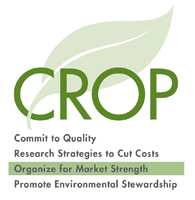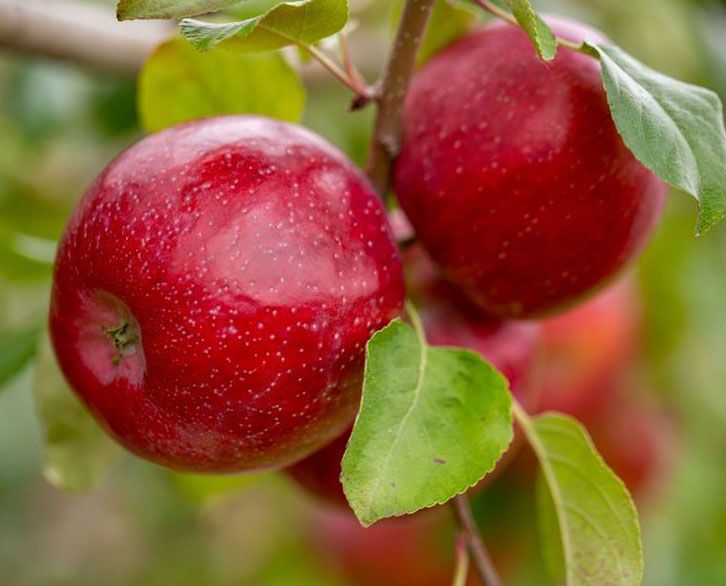Farm Marketer Leads By Example

It might seem surprising that up until the past couple of years, fruit growers and other farmers in Michigan did not have a statewide voice to address their farm marketing and agritourism concerns. After all, if you were to take a drive through different parts of Michigan, you’d find all sorts of farm-related activity, from U-pick apple orchards to cider mills, from vineyard bed and breakfasts to maple syrup suppliers.
That all changed in late 2005, when the Michigan Farm Marketing and Agritourism Association (MI-FMAT) was officially unveiled at the Great Lakes Fruit, Vegetable & Farm Market Expo in Grand Rapids. After months of input from agriculture industry professionals, including roundtable discussions and Web surveys, there was finally an organization that could address the concerns of growers looking to get involved in direct marketing, as well as those already involved who were looking for advice or new ideas.
A board of directors was soon established for MI-FMAT, and it seems a natural that Steve Tennes of Country Mill Orchard and Cider Mill in Charlotte was named the first president of the organization. After all, there’s a reason that Country Mill Orchard is as successful today as it was when the first apple trees were planted in 1871. But it’s not necessarily because of the fruit. Sure, the Tennes family still grows great-tasting apples, but perhaps the main attraction at the farm is its agritourism activities, which include U-pick apples, a corn maze, school tours, and more.
Tennes is quick to credit the involvement of several other individuals and organizations in the creation of MI-FMAT, including Michigan Farm Bureau and Michigan State University’s Project GREEEN, which funds university research programs. The academic influence for MI-FMAT was Patrick O’Connor, a former officer with the Michigan Apple Committee who is now involved in marketing research at Michigan State.
Standards For Success
According to Tennes, there are three main priorities that MI-FMAT will provide to its grower members.
– Promotion. “The goal of the association is to make it easier for our members to get new customers to their destination,” says Tennes. The main vehicle for this promotion is the association’s newly formed Web site. (In a rather brilliant move, the MI-FMAT board is also locking in that domain name with a “.org” ending.) Consumers who go to the Web site are able to search for farms close to where they live, or search for farm-related activities in which they can participate.
– Governmental affairs. This is perhaps the most important principle behind MI-FMAT. Its board members made sure to do their homework early, forming a subcommittee that included a farmer who was also a lawyer, as a well as a grower who had previous experience dealing with her local township.
“We’re trying to come up with a set of Good Agricultural Practices for farm marketing,” says Tennes. One of the ideas behind this is the “right to farm” principle. In too many cases, Tennes notes, growers today are threatened by local zoning boards and neighbors who want to influence how they run their markets. “All it takes is one person who doesn’t like all those cars driving by their house,” he says. “Our goal is to work within existing legislation on the right to farm, that will include some provisions that will ensure a farmer’s right to market their own crop from their farm.”
The problem is, there is still a lot of ambiguity in this area, simply because there are very few laws on the books. “What we’re trying to do is clarify it, so that local government entities can’t prevent a farm market from being in operation or expanding,” says Tennes.
– Networking and education. Most growers have been on at least one tour where they’ve visited other farms and learned new production or pest management practices. MI-FMAT works the same way, although its lessons are not in how to grow your crops, but rather in how to market them. “Some of the techniques that someone would suggest at an apple orchard are the same as those blueberry or vegetable growers, or even dairymen, may want to learn from,” says Tennes.
Just last month, MI-FMAT held its first bus tour of southwest Michigan, touring farm markets and agritourism destinations to help members of the ag community learn about new and innovative marketing techniques.
Making The Complex Simple
If a grower already has a successful farm market, Tennes says the best way they will benefit from MI-FMAT is through government affairs. “Almost all fruit growers that have farm markets have faced some level of pressure from their local government,” he says. For example, visits from health department officials who don’t fully understand agriculture can be a nightmare.
In addition, growers new to direct marketing, or those looking to expand their markets, may have questions about zoning, building regulations, or parking lot sizes. A group such as MI-FMAT can use the knowledge of its membership base to provide answers for these growers, or it can work together to help them deal with their local government. This is also where networking comes into play. “It helps fruit growers that may have been around for 100 years, but have never sold direct until now,” says Tennes.
For his part, Tennes plans to use MI-FMAT to benefit both his own farm, and his neighboring growers. He already plans to use the Web site to promote his business; however, Country Mill is only open to the public two months out of the year (although it does hold special events at times). In between that time, he’d like to send his customers to other surrounding farms that offer activities during a different part of the season, such as a strawberry patch. “The more that we as farmers can make the general public think of farms, and maintain a frequent connection to them, the better we will all be.”
Zoning is a particularly complicated issue, and Tennes says his experience with government affairs through MI-FMAT has helped him work with local county officials during a recent expansion of Country Mill’s banquet facility. “Zoning problems weren’t an issue 30 years ago,” he says. “Where will they be 30 years from now if we don’t do something now to solidify our position?”
Above all, Tennes recognizes that direct marketing and agritourism is something that all growers, regardless of their location, need to start thinking about. With increased foreign competition, agritourism is the one thing that consumers can only get from their local growers. “It can’t be imported from China.”
Learn More
Are you looking to join the Michigan Farm Marketing and Agritourism Association? Or perhaps you simply want to learn more about it and even pick up a few take-home ideas. For more information on the organization, go to www.mi-fmat.org. There’s a section on industry information, as well as consumer information.










